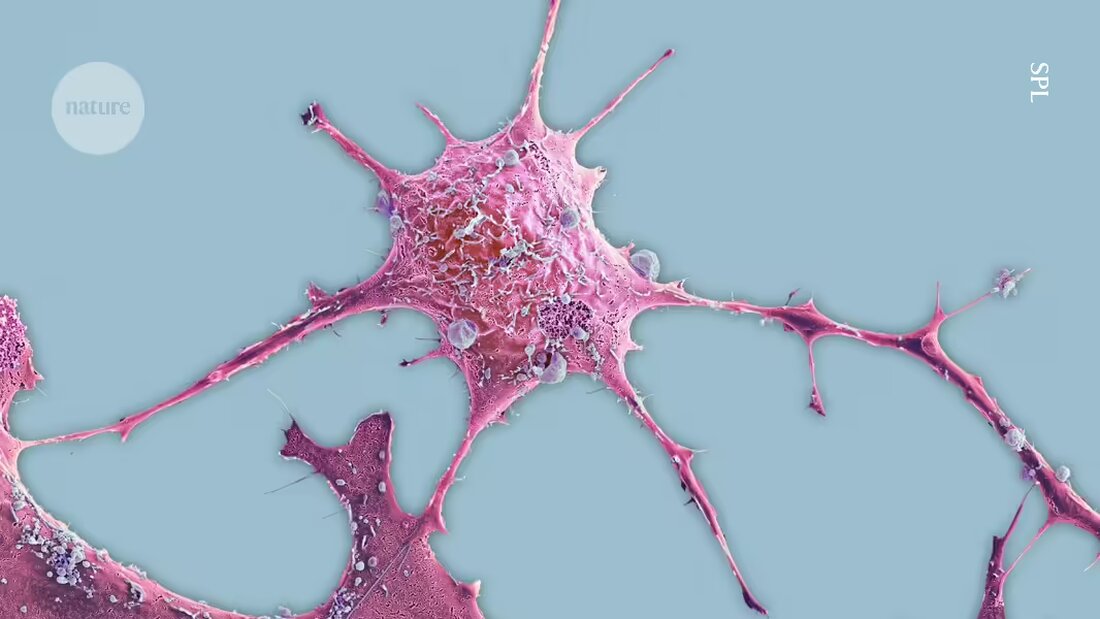The Types of nerves that allow people to touch, see, hear, and taste, can help Breast cancer cells invade other areas of the body, shows a study 1in mice and in laboratory cells. Research also shows that a drug used to treat nausea can block interactions between some cancer and nerve cells.
More research is needed to confirm that the results apply to people with breast cancer. But that today inNaturepublished paper is the latest in a wave of discoveries about the relationship between cancer and the nervous system. However, the discovery is unique because these 'sensory' nerves appear to interact directly with tumors to promote the spread of the cancer, rather than triggering immune responses that then support the tumor's formation and growth.
The focus on sensory nerves, as opposed to other branches of the nervous system, is particularly notable, says Timothy Wang, a gastroenterologist at Columbia University in New York City who was not involved in the study. “These nerve fibers are very numerous and always sensitive,” he says. “I conclude that the sensory nervous system is probably one of the most important overall in mediating the growth of solid tumors.”
Neuron-cancer interaction
The study began when Sohail Tavazoie, an oncologist and cancer biologist at Rockefeller University in New York City, and his colleagues looked for genes that promote the spread of cancer in the body. The search kept turning up genes involved in the nervous system, and Tavazoie's team began to consider whether that The nervous system and cancer cells communicate with each other to promote cancer metastasis.
To find out, researchers examined the presence of proteins produced by nerves in breast tumors. They found that the cancers that had more nerves were more likely to become invasive than those with fewer nerves.
Then Veena Padmanaban, a cancer researcher also at Rockefeller University, developed a method to grow mouse mammary tumor cells and sensory neurons in the same tissue culture dish. The team found that the presence of cancer cells stimulated the nerves in these cultures to produce a natural molecule called substance P, which is involved in pain and inflammatory responses, among other processes.
A formula for tumor growth
The researchers then examined human breast cancer samples and found that tumors with high levels of substance P were more likely to spread to the lymph nodes.
Tavazoie and his colleagues suggest that substance P triggers a molecular chain reaction that activates genes associated with metastasis. The authors suggest a way to interrupt this cascade with an anti-nausea drug already given to some cancer patients during chemotherapy. The team found that the drug, called aprepitant, slowed tumor growth in mice and reduced signs of invasive potential in cancer cells grown in sensory nerve cultures.
Aprepitant is usually given for only a few days, but the results suggest that clinical trials in which cancer patients take the drug for a longer period of time may be warranted, Tavazoie says.
Repurposed medications
It remains to be seen how well these results translate from the laboratory to the clinic and from breast cancer to other tumor types, he adds. But previous studies have shown that nerves in the autonomic nervous system, which regulates involuntary organ functions such as heart rate and digestion, may contribute to prostate and gastrointestinal cancers 2, 3.
And clinical trials are currently testing findings 4by Erica Sloan, a cancer biologist at Monash University in Melbourne, Australia, and other scientists, who showed that a branch of the autonomic nervous system influences breast cancer. These findings suggested that drugs called beta-blockers, currently used to treat some cardiovascular diseases, could reduce the chances of metastasis.
Clinical trials are currently underway to test beta-blockers in combination with other cancer treatments, including immunotherapy and radiation therapy, says Sloan. “This space of drug repurposing has opened up,” she says. “It will be important to see how relevant this is in a clinical setting.”

 Suche
Suche
 Mein Konto
Mein Konto

